The Group on Earth Observations (GEO) is an intergovernmental partnership that improves the availability, access and use of Earth observations for a sustainable planet. Composed of more than 100 national governments and 100 Participating Organisations, GEO promotes open, coordinated and sustained data sharing and infrastructure for better research, policy making, informed decisions and action across many disciplines.
The GEO community focuses on three global priority engagement areas: the United Nations 2030 Agenda for Sustainable Development, the Paris Agreement, and the Sendai Framework for Disaster Risk Reduction.
GEO promotes activities related to ocean observations for societal benefits through the GEO Blue Planet Initiative, which aims to ensure the sustained development and use of ocean and coastal observations to respond to societal needs.
GEO also fosters ocean related activities through other initiatives, including:
- Aquawatch Initiative, which seeks to develop and build the global capacity and utility of Earth Observation-derived water quality data, products and information to support water resources management and decision making.
- GEO Biodiversity Observation Network’s Marine arm (MBON), which is a “coalition of the willing” who agree to share knowledge and know-how to evaluate changes of biodiversity in the ocean, including data, products, protocols and methods, data systems and software
- GEO Data Working Group, which is working with the GEO community and with external stakeholders to advance open data policies, thereby improving the uptake of Earth observations for the benefit of all stakeholders.
GEO, GEO Blue Planet & EU4OceanObs
In 2012, GEO implemented the GEO “Oceans and Society: Blue Planet” Initiative, known today as GEO Blue Planet, with the aim to ensure the sustained development and use of ocean and coastal observations for the benefit of society.
EU4OceanObs, through its GEO Blue Planet action coordination, seeks to strengthen the European Union’s participation and influence in GEO international partnership and GEO’s other ocean related initiatives. To find out more, click here.
Resources
- GEO Work Programme 2023 – 2025: https://earthobservations.org/organization/work-programme
- GEO Post-2025 Strategy – Earth intelligence for all: https://earthobservations.org/storage/app/media/documents/Key-Documents/GEO%20Post%202025%20Strategy%20Full%20Document.pdf





